Here’s why startup Lavoie could be the Apple of luxury e-scooters
This e-scooter’s folding mechanism is inspired by F1 car suspension

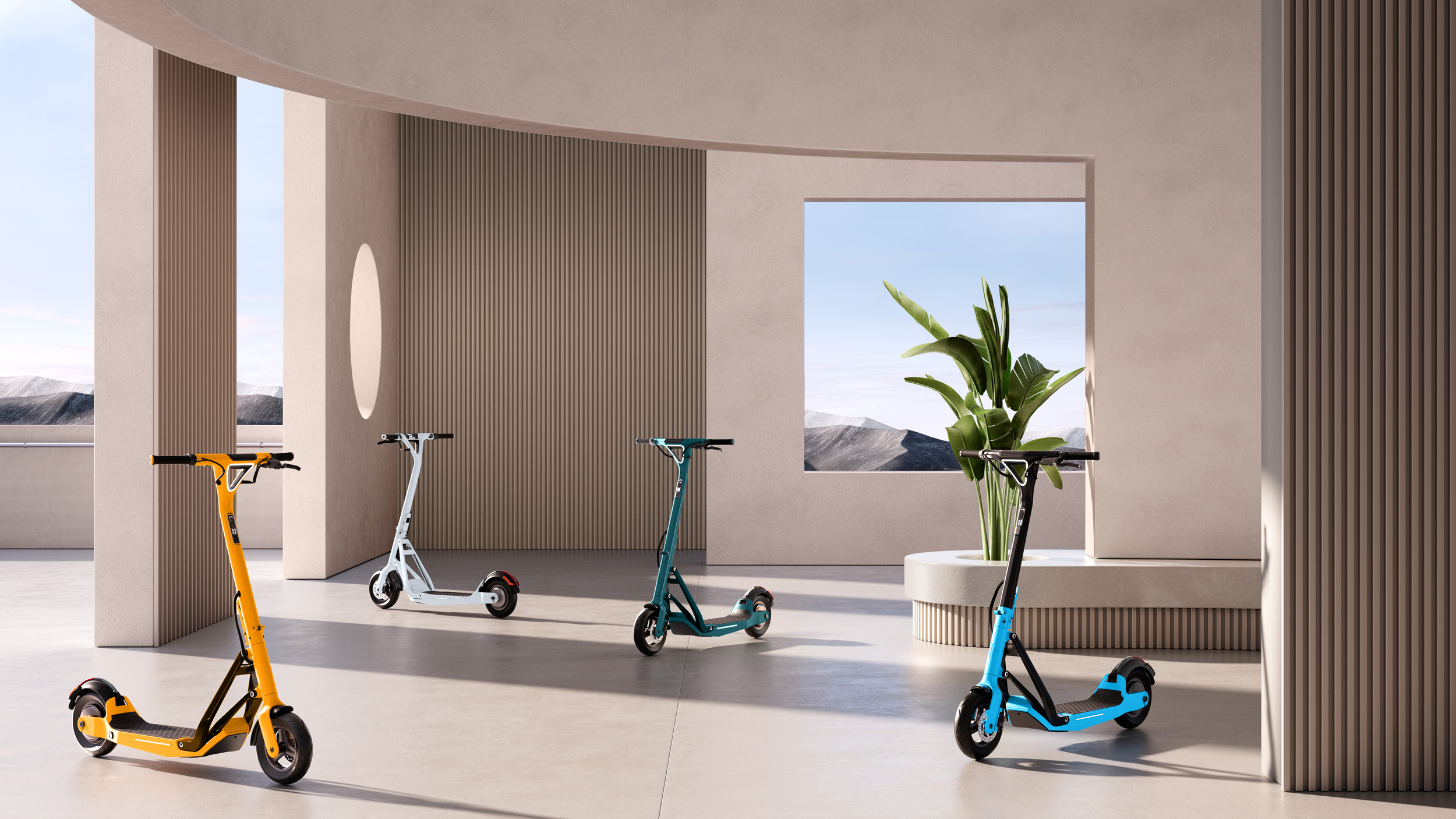
What if an electric scooter was designed from the outset to be a premium vehicle, full of innovation and connectivity with performance, safety, reliability and ease-of-use in mind, not just a competitive price?
That’s the approach chosen by Lavoie, a startup whose Series 1 is currently available to order and will start shipping later this year. Made from automotive-grade magnesium and with a folding mechanism inspired by the suspension of a Formula One car, the Series 1 is intended to draw a line under cut-price e-scooters, and instead show what’s possible when aiming at the luxury urban transportation market.
Priced from £1,890, the Lavoie Series 1 produces up to 900W of power, 30Nm of torque and has a top speed of up to 25 mph, but this can be lowered to comply with differing regional and national regulations. The range varies from 15 to 45 miles depending on the model and which ride mode is used.
It has three ride modes, a magnesium alloy monocoque chassis, an hydraulic disk brake at the front and regenerative braking at the rear, plus waterproofing and a horn. It also has a lot of lighting, including brake lights, headlights and indicators, plus halo lighting on the side and ‘presence lights’ to help boost vehicle and rider visibility at night.
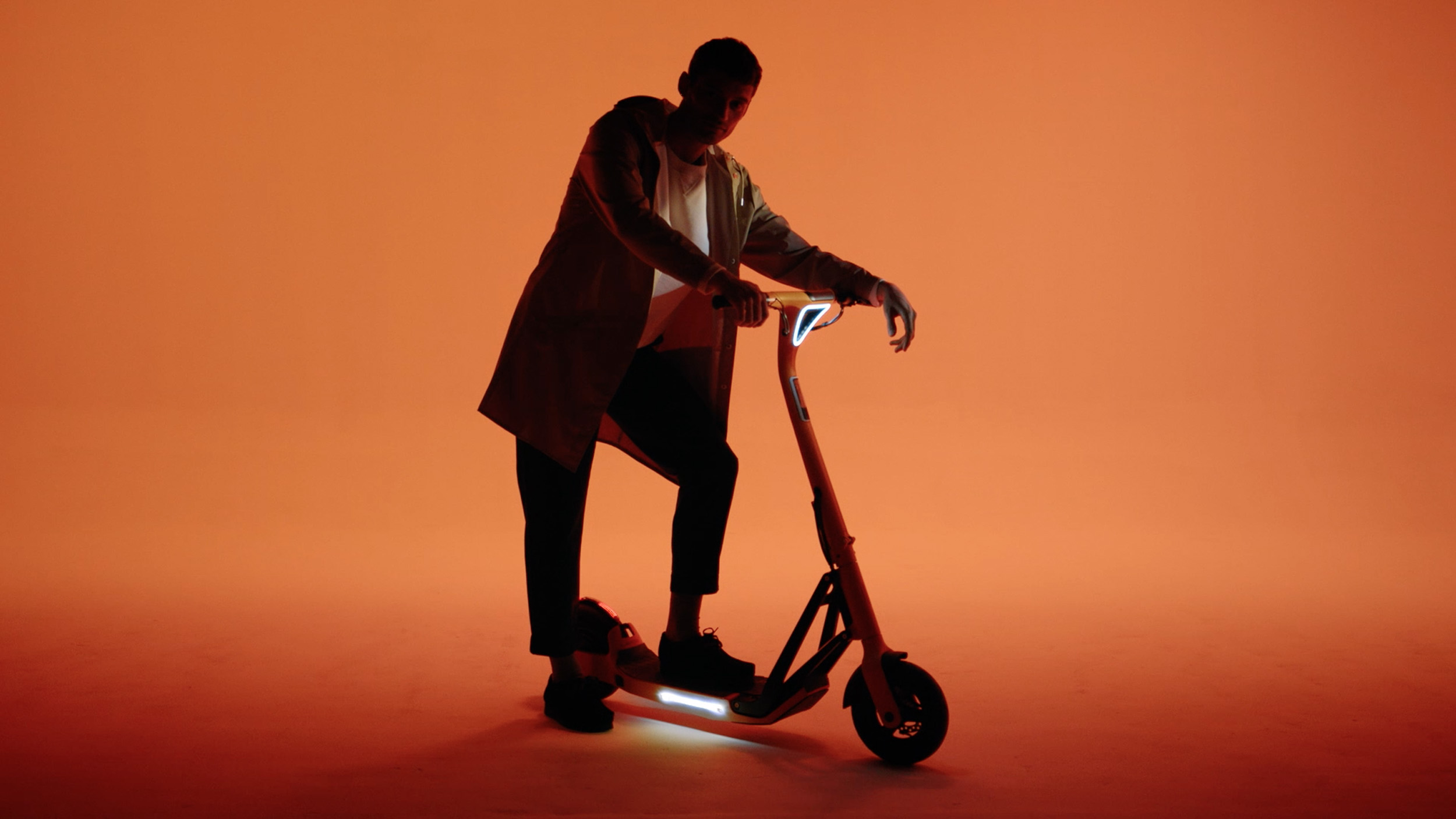
There's Bluetooth for connecting to Lavoie's smartphone app, and a USB-C port too, plus a global cellular connection and a subscription service that helps locate the scooter if it is lost or stolen. There’s also GPS tracking, password protection and the motor can be locked into position via the phone app. In other words, this is an e-scooter with some serious thought put into it.
Eliott Wertheimer, co-CEO of Lavoie, explained to me how he wanted to build an electric scooter that was a step above anything else, and some distance away from how alternatives are sometimes perceived. “We’ve all been using [scooters] as a kid, but we haven’t really seen our parents on them. We saw our parents on bicycles, so that’s ok, you can go to the office on one of those. But with scooters…they’re perceived as lame, they are seen as uncool”.
Wertheimer also had concerns with the quality and safety of early, low-priced models of e-scooter. “They were very cheap and it was a good way to enter the market, but it’s a bit flimsy. It’s dangerous, honestly. It’s not stable enough…the batteries were not certified properly…So we looked at it and thought ok, we need to help solve that because we’ve now got the brain power, the designers, everyone we need for that.”
Get all the latest news, reviews, deals and buying guides on gorgeous tech, home and active products from the T3 experts
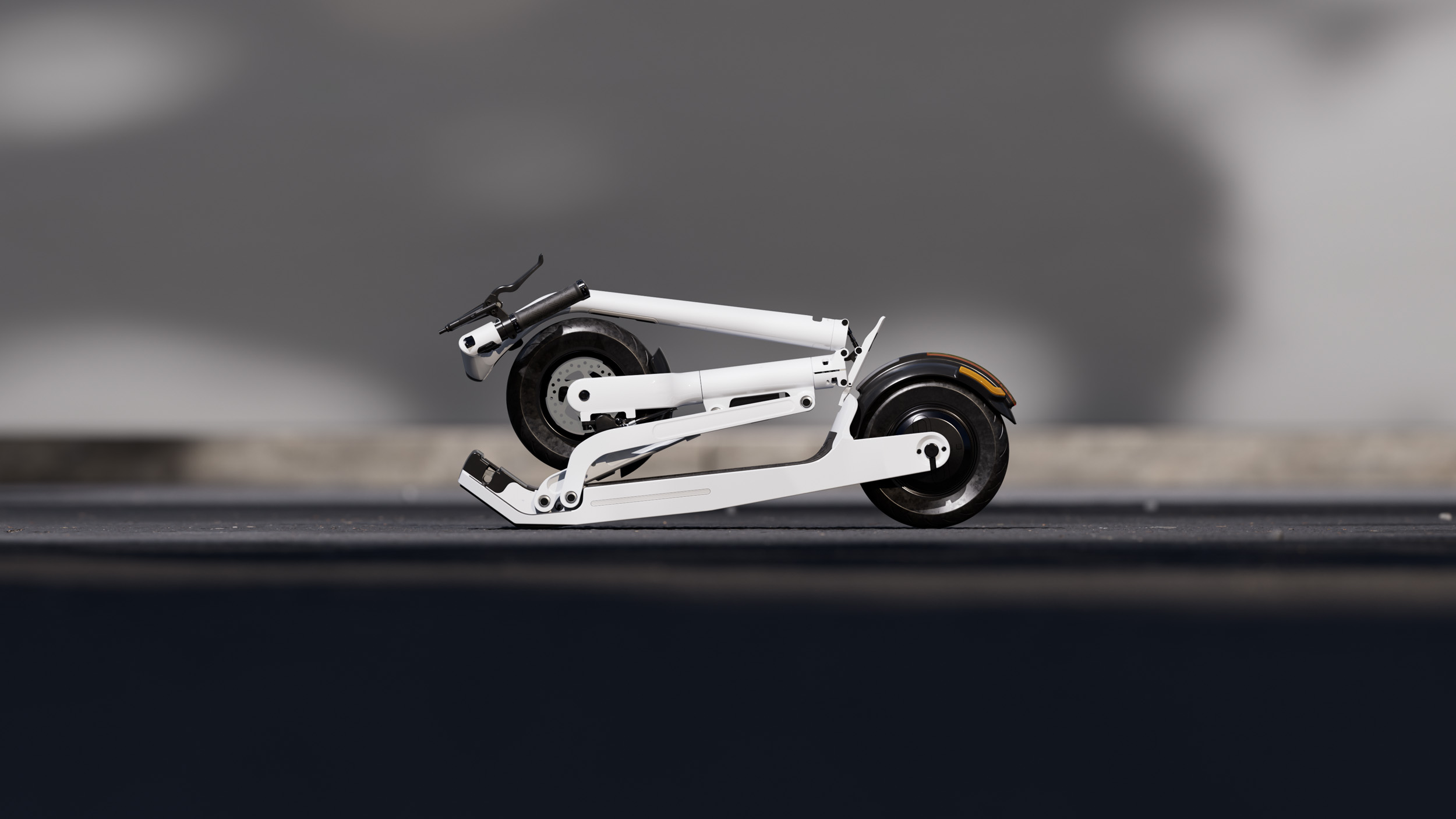
More specifically, Lavoie is overseen by non-executive chairman Nick Fry, the former CEO of the Mercedes Formula One team. Former Jaguar design director Ian Callum is involved with the Lavoie Series 1’s colour schemes, and the company itself was born out of McLaren Applied, the technology company formerly a part of the McLaren Group, which includes the firm’s supercar business and F1 team.
Wertheimer says how Lavoie wanted to create a vehicle “you could be proud of…an object of desire, and the way we did that is not only through design, but also through the form factor.”
The most prominent (and challenging) aspect of the Lavoie’s form factor is its folding mechanism. Inspired by F1 suspension, it allows the scooter to be quickly and easily folded or unfolded, but it also cleverly engages the integrated floor stand. This sees the deck drop down at the front, creating a stand for when the scooter is parked (pictured below).
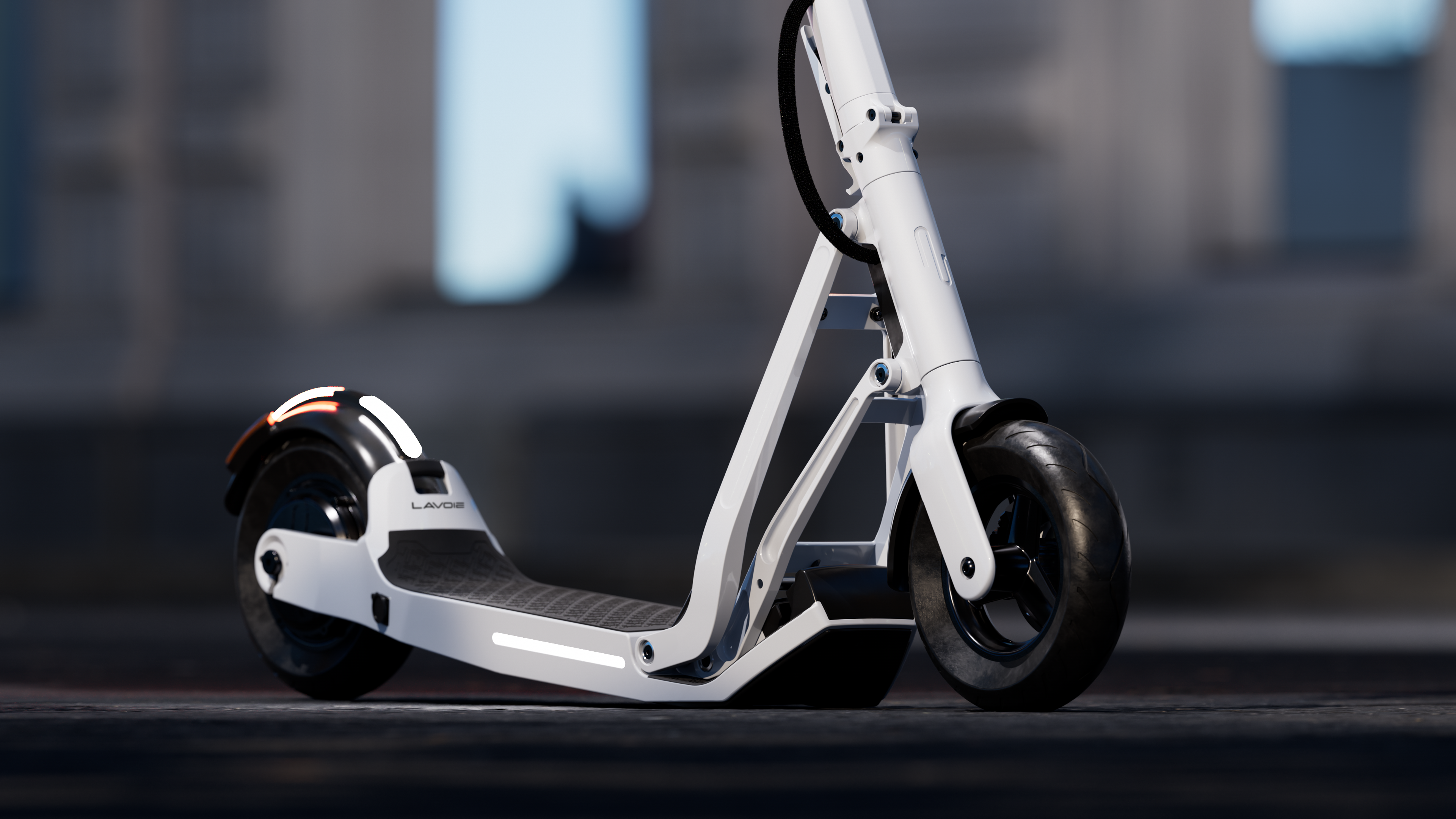
As well as being convenient, the shape of the folding mechanism pushes the front wheel further ahead of the handlebars than on other scooters. This, along with how the handlebars are angled towards the rider instead of directly upwards, and are set far apart, is claimed to improve stability.
I had a quick ride of an early prototype outside Lavoie’s London office and I’m inclined to agree. The Lavoie Series 1 feels bigger than other e-scooters I’ve tried, but considerably more stable too, with intuitive steering that seems to naturally return to the straight-ahead. Lavoie says this means less wobble and smoother riding around obstacles and through city traffic (in countries that allow e-scooters on the road, of course).
Wertheimer said: “The key thing here is that we’re developing a vehicle, so we spent a lot of time developing testing processes that are way above regulatory standards…[we said to ourselves] ‘let’s create a vehicle that will redefine the category’.”
In a move straight out of Apple’s playbook, Wertheimer says how Lavoie is intentionally aiming at the top of the market with a premium product and a price to match. “That’s the thing with the pricing…The whole category is competing at the toy level [of around £500 or less] and we come in with a vehicle, we still feel our pricing is relatively ok. Because what you’re buying is not a toy, it is actually a vehicle you’re going to use every day. You can trust it to be safe…the price is representative of the quality of the product, and what we’re trying to do is really move the category.”
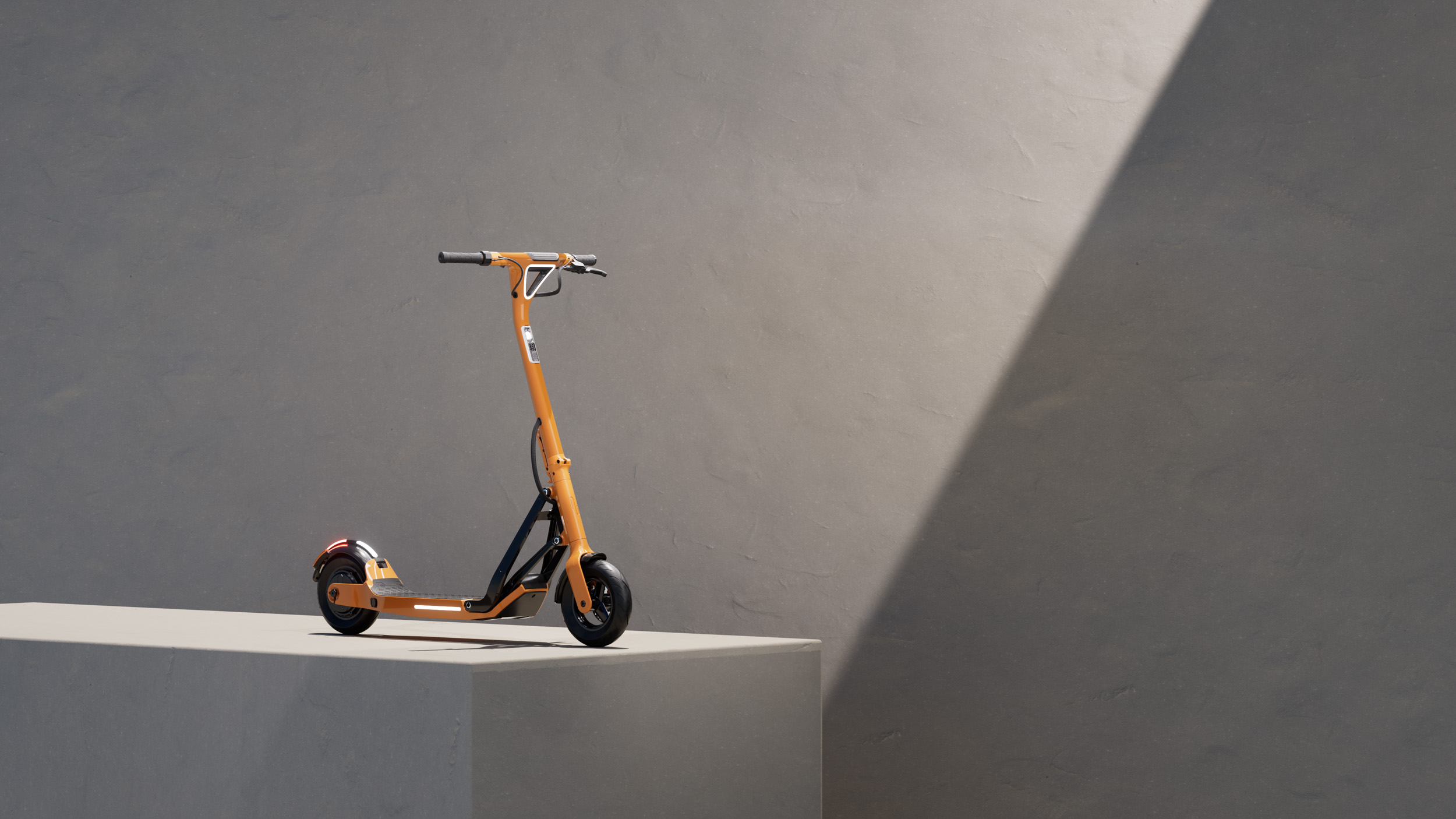
Lavoie says its Series 1 will be rated to 10,000km (6,200 miles) with minor servicing, and Wertheimer says “it will last a very long time; like years and years and years.” The company is also confident it can pacify concerns over the batteries used by some e-scooters, which prompted a ban on all forms e-scooter on London’s entire transport network. The Lavoie Series 1's batteries are certified and weatherproof, and the company says it is going “above and beyond” to ensure its vehicles meet future regulation that might be required if/when privately owned e-scooters are deemed road-legal in the UK.
As for expansion beyond the initial Series 1, Lavoie has plans for a range of vehicles. “We will have a line of products,” Wertheimer said, adding: “There will be different kinds of products with different specific use cases, then we’ll upgrade them every time there’s significant technological improvements.”
The scooters will receive improvements via over-the-air firmware upgrades too, with the potential for increasing range with future improvements to motor and battery efficiency.
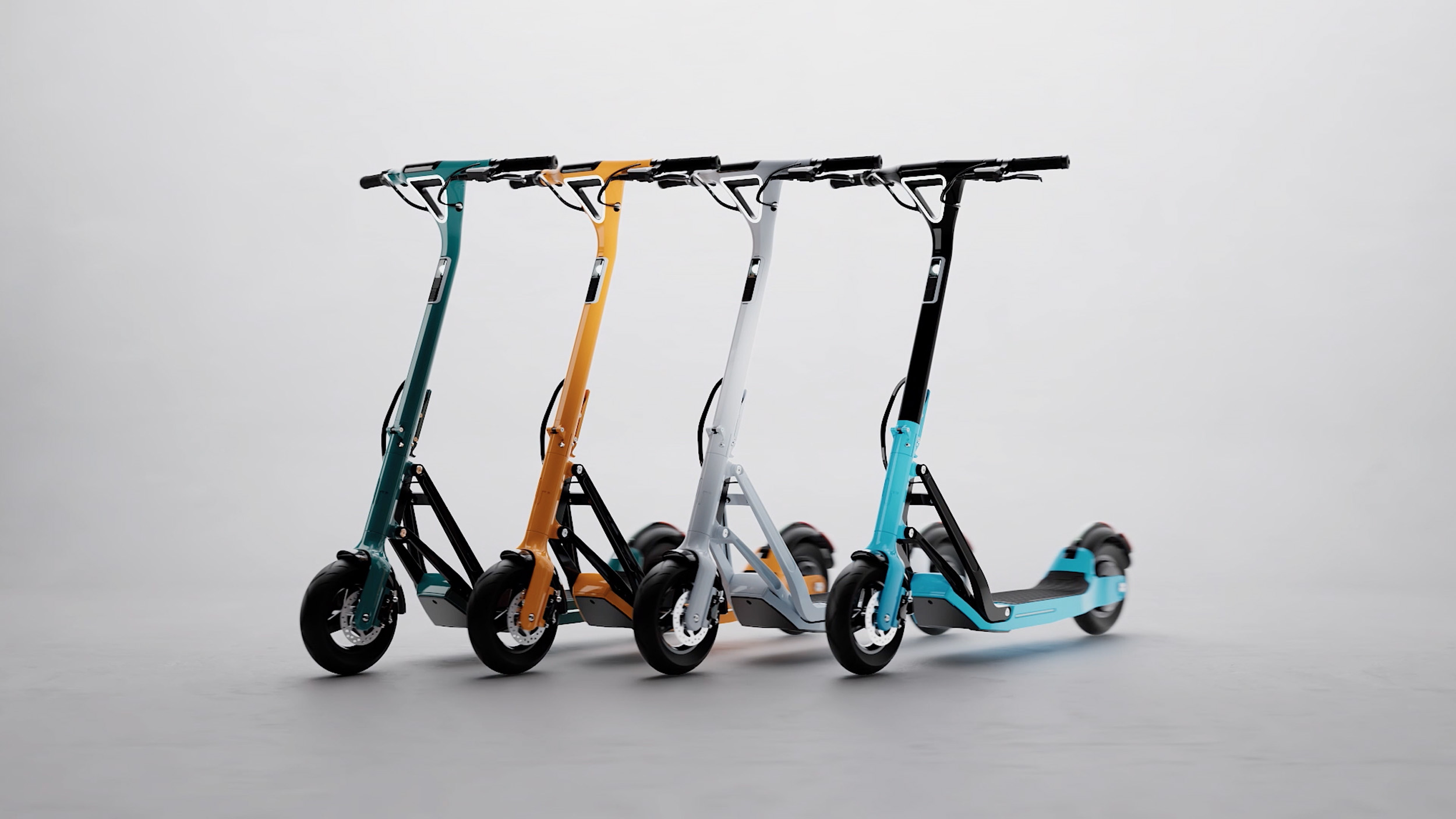
Lavoie has a lot of plans for the future, from expanding its model lineup, upgrading with software and even potentially offering a line of branded accessories and clothing too. But for now it needs to prove there is a solid business model for a premium e-scooter that, for now at least, is priced between £1,890 and £2,190.
There will doubtless be customers willing to pay the premium, like those who buy the best sound systems, the biggest televisions, the most powerful laptop and designer cases for their smartphone. But it will be interesting to see if such a business can scale enough to be a success, and if legislation – at least here in the UK, where it lags behind some other nations – can finally adapt and embrace new forms of urban mobility.
If you want more info on the best model to buy for your needs and the factors to consider, check out our how to choose an electric scooter guide. And you'll want to make sure you're fully kitted out with the best electric scooter accessories as well.
Alistair is a freelance automotive and technology journalist. He has bylines on esteemed sites such as the BBC, Forbes, TechRadar, and of best of all, T3, where he covers topics ranging from classic cars and men's lifestyle, to smart home technology, phones, electric cars, autonomy, Swiss watches, and much more besides. He is an experienced journalist, writing news, features, interviews and product reviews. If that didn't make him busy enough, he is also the co-host of the AutoChat podcast.
